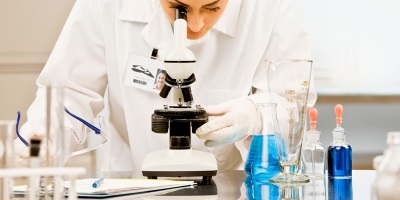Coprogram - baby stool analysis
By analyzing the feces of children, infectious and inflammatory diseases of the digestive system can be diagnosed in babies, as well as to detect internal bleeding and parasitic invasions.
When do I need to take an analysis?
Coprogram is prescribed for diseases of the digestive tract and suspicion of them. The study is conducted to determine the state of the intestine, liver, stomach, pancreas. The analysis helps to detect hidden blood in the feces, helminth eggs, pathogenic bacteria, as well as to determine the composition of the intestinal microflora.
Training
Since the use of drugs can affect the results of the analysis, Before you make a coprogram, it is recommended that you take anti-inflammatory and antacid agents, any antibiotics, laxatives and anti-diarrheal drugs, iron supplements and some other drugs for 1-2 weeks (after consulting a doctor). If you do not have time to cancel these types of drugs, be sure to warn the doctor that the child took them during the delivery of the analysis.
It is also important to warn the doctor that an infant was given an enema shortly before the analysis or an x-ray examination was performed that used barium. For three to four days before the coprogram, rectal suppositories should not be administered.
Preparation for analysis also includes following a specific diet. On the eve of putting feces for analysis, a child’s diet is limited to fish, vegetables, greens, meat and fruits. Give your baby eggs, dairy products, cereals, butter, bakery products.
How much feces should I take?
For coprograms, you should provide feces in the amount of approximately one teaspoon.
How to collect?
Fecal masses in the right quantity are collected in a clean container, which has a tight-fitting lid. The best choice is a sterile jar, designed specifically for the analysis of feces, which can be purchased at the pharmacy.
In infants
Fecal masses should be collected from the diaper, since the diaper absorption of a part of the liquid can affect the result of the coprogram.
In older children
Before taking feces, the child must urinate so that urine does not get into the feces. Next, you should wash the anus area with warm water using baby soap, which must be thoroughly washed off. The feces are placed in a clean container and tightly closed.
Do not collect feces from the toilet, if it has been previously treated with disinfectants or cleaning agents.

How, where and how long can you store?
It is best to take “fresh” feces to the laboratory, received within three hours prior to analysis. If this is not possible for various reasons, a tightly closed container with feces can be stored in a refrigerator for up to five to eight hours. Note that the study on parasite eggs is carried out only with the "fresh" (still warm) feces.
Deciphering coprogram in children discussed in detail in another article. It contains not only the values of the norm, but also presents the possible causes of deviations.








